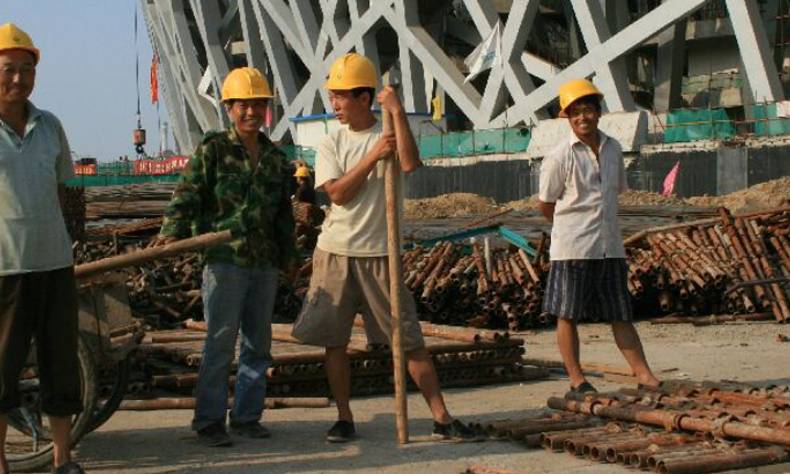
Chinese Migrant Workers: Bridging the Gap
I come from a small town in China’s countryside, and upon graduating from a Beijing university in 2014, I went to work at a media company in the capital. Last week, I helped an older cousin of mine who did not finish secondary school find a job as a waitress in Beijing. She is part of China’s millions-strong population of transient migrant workers, moving about the country and doing jobs that locals prefer not to. She needs money, and the job provides her more than what she could earn working in her hometown. But migrant life is a tradeoff, and my sister often weeps at the thought of her two children, a girl (13) and boy (7), at home with their grandparents.
My cousin believes that China’s urban residents do not care about her or respect her, that there exists a gap in society between them and her. From reading newspapers and learning of other migrant workers’ experiences, she feels that rural migrants work the jobs that city folk don’t want while being looked down on by those being served like royalty on their subjects.
This says much about China’s social attitudes towards migrant workers, hard-working yet mostly uneducated laborers and waitresses, hairdressers and stall owners, who often come from the vast interior of the country and make up half of China’s urban workforce, an indispensable yet socially marginalized demographic.
Rural migrants in China continue to suffer from deep-seated prejudices and discrimination. Not only are they denied access to public services in the country’s cities due to the hukou (household registration) system, they are also subjected to day-to-day exclusion and abuse. You see them being snidely talked to and shouted at in public as though they were children; you see them banned from hotel lobbies and posh restaurants; and Chinese people think nothing of hurling the insult “you are like a migrant worker” when describing someone with a tan (as migrant workers sometimes toil for hours outdoors, their skin tone can often be darker than the average white collar worker) or who may be neglecting their personal hygiene. How has such disrespect become acceptable?
In order to change that, China introduced a reformed hukou system on July 30, 2014, the State Council-backed plan aimed at removing the distinction between urban and rural residents, at the same time improving the rights of migrant workers. On the surface, the plan should help migrant workers gain access to public services and social welfare. The Chinese government recognizes this social problem and is doing all it can to tackle it, but the problem needs to be solved step by step instead of changing everything at once. The influence of 230 million migrant workers is so huge that the efforts of the government to boost the nation’s economy with consumption will be greatly affected; migrant workers traditionally save their money instead of spend it due to a lack of access to education and different kinds of insurance.
The media can play a more proactive role in changing the stereotyped image of rural migrants. They may be undereducated, but migrant workers are still citizens of this proud country working towards a better life and who deserve to be treated with equality and kindness. I hope that a day will soon come when my cousin and her millions-strong brotherhood of hardworking laborers and waitresses can expect respect from others and live a happy life reunited with their family.
 Facebook
Facebook
 Twitter
Twitter
 Linkedin
Linkedin
 Google +
Google +



Comments are closed.